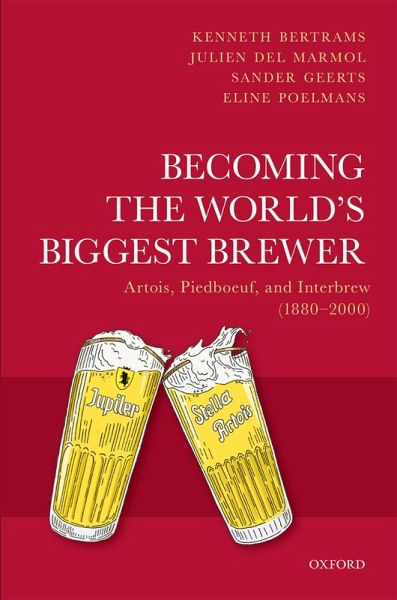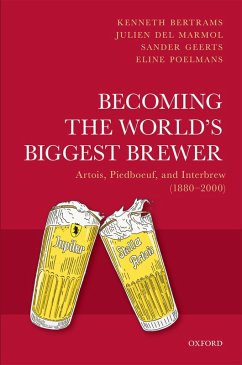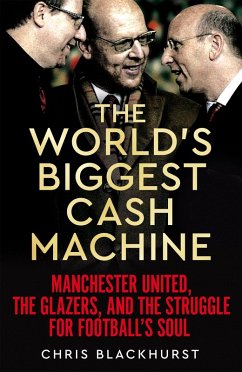
Becoming the World's Biggest Brewer (eBook, ePUB)
Artois, Piedboeuf, and Interbrew (1880-2000)
Versandkostenfrei!
Sofort per Download lieferbar
72,95 €
inkl. MwSt.
Weitere Ausgaben:

PAYBACK Punkte
36 °P sammeln!
AB InBev is today's uncontested world leader of the beer market. It represents over 20% of global beer sales, with more than 450 million hectolitre a year flowing all around the world. Its Belgian predecessor, Interbrew, was a success story stemming from the 1971 secret merger of the country's two leading brewers: Artois and Piedboeuf. Based on material originating from company and private archives as well as interviews with managers and key family actors, this is the first study to explore the history of the company through the nineteenth and twentieth centuries. The story starts in the mid-n...
AB InBev is today's uncontested world leader of the beer market. It represents over 20% of global beer sales, with more than 450 million hectolitre a year flowing all around the world. Its Belgian predecessor, Interbrew, was a success story stemming from the 1971 secret merger of the country's two leading brewers: Artois and Piedboeuf. Based on material originating from company and private archives as well as interviews with managers and key family actors, this is the first study to explore the history of the company through the nineteenth and twentieth centuries. The story starts in the mid-nineteenth century with the scientific breakthroughs that revolutionised the beer industry and allowed both Artois and Piedboeuf to prosper in a local environment. Instrumental in this respect were the respective families and their successive heirs in stabilizing and developing their firms. Despite the intense difficulties of two world wars in the decades to follow, they emerged stronger than ever and through the 1960s became undisputed leaders in the national market. Then, in an unprecedented move, Artois and Piedboeuf secretly merged their shareholding in 1971, though keeping their operations separate until 1987 when they openly and operationally merged to become Interbrew. Throughout their histories Artois, Piedboeuf, and their successor companies have kept a controlling family ownership. This book provides a unique insight into the complex history of these three family breweries and their path to becoming a prominent global company, and the growth and consolidation of the beer market through the nineteenth and twentieth centuries.
Dieser Download kann aus rechtlichen Gründen nur mit Rechnungsadresse in A, B, BG, CY, CZ, D, DK, EW, E, FIN, F, GR, HR, H, IRL, I, LT, L, LR, M, NL, PL, P, R, S, SLO, SK ausgeliefert werden.













